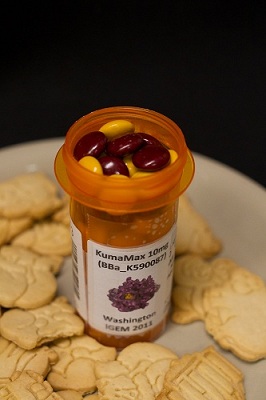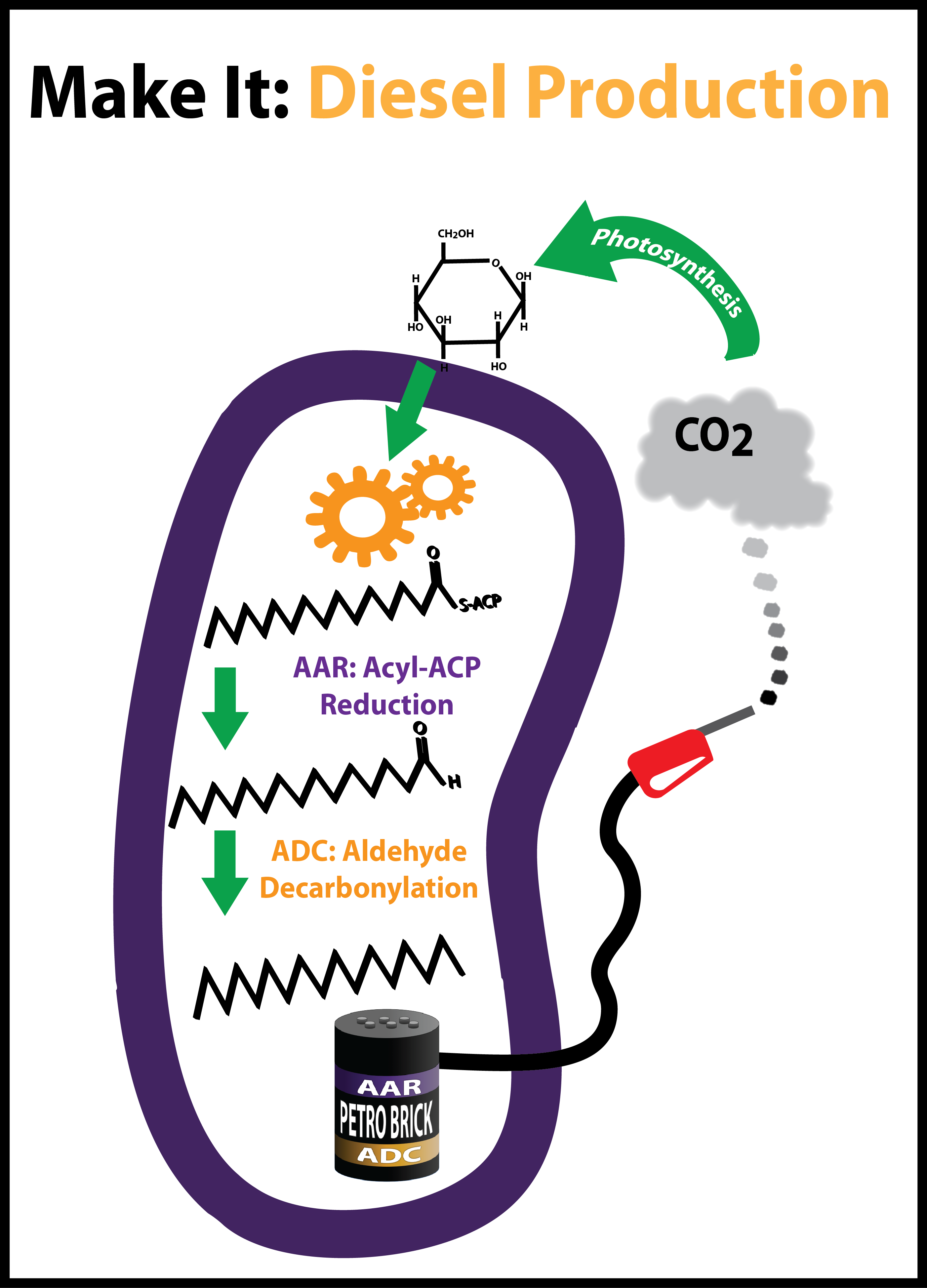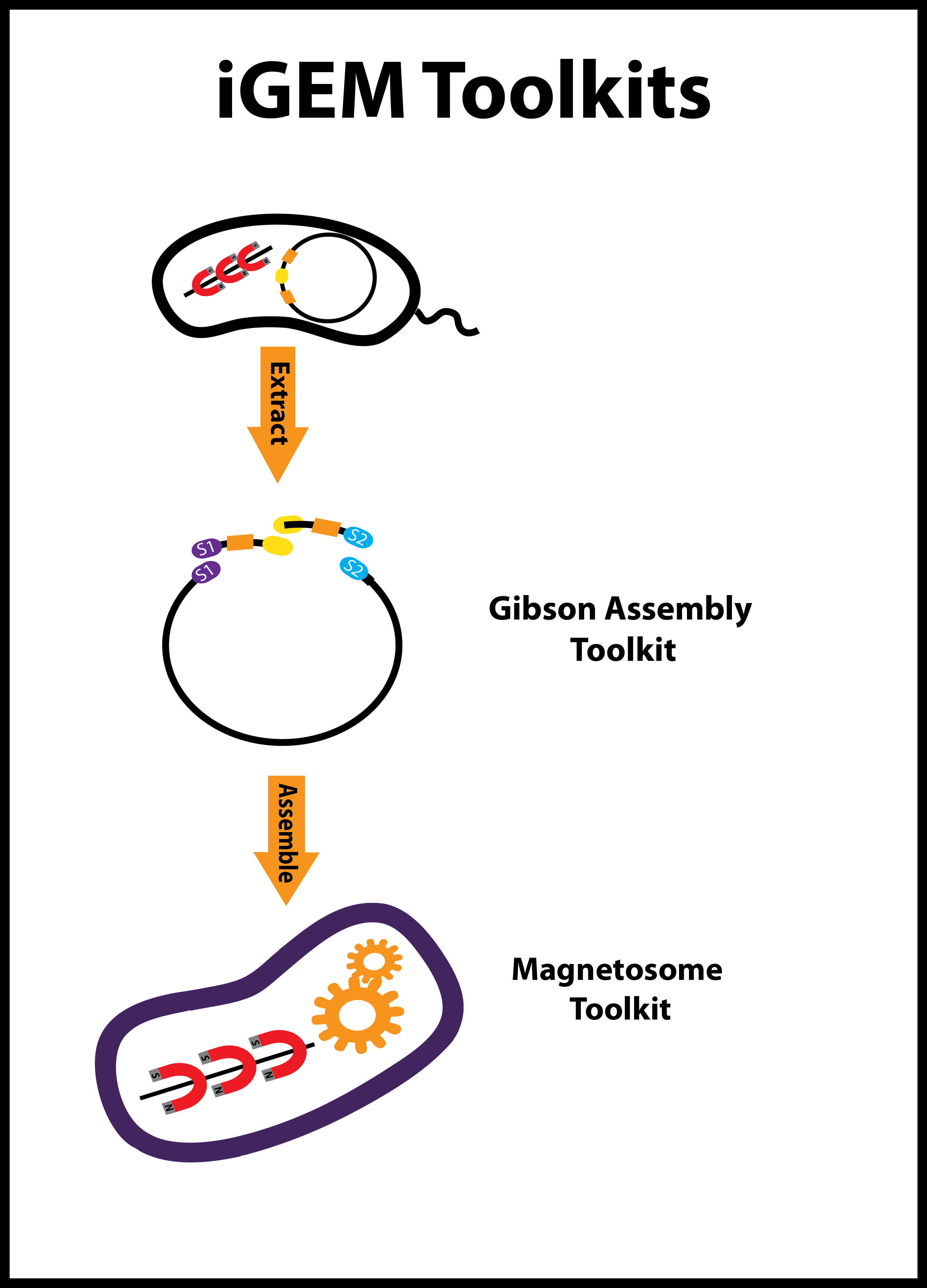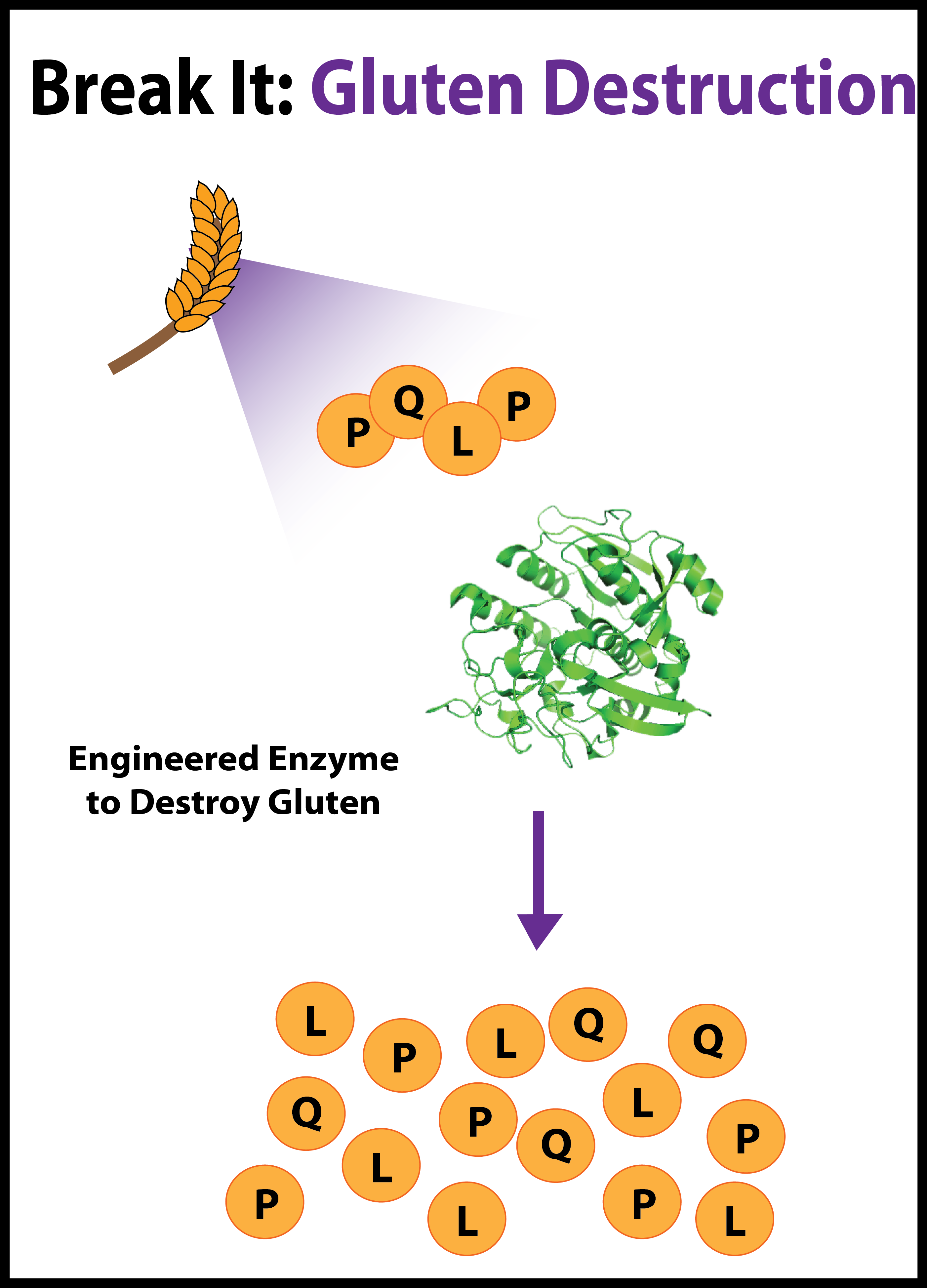Team:Washington
From 2011.igem.org
| Line 2: | Line 2: | ||
__NOTOC__ | __NOTOC__ | ||
| - | <html><meta name="google-site-verification" content="fg3_xZB6BF10NZTT7oSIbF6AmRx0o-b-VZdgok0O3Ok" />< | + | <html><meta name="google-site-verification" content="fg3_xZB6BF10NZTT7oSIbF6AmRx0o-b-VZdgok0O3Ok" /></html> |
=<center>'''Make It or Break It: <br/> Diesel Production and Gluten Destruction, the Synthetic Biology Way'''</center>= | =<center>'''Make It or Break It: <br/> Diesel Production and Gluten Destruction, the Synthetic Biology Way'''</center>= | ||
Revision as of 22:19, 16 October 2011
Make It or Break It:
Diesel Production and Gluten Destruction, the Synthetic Biology Way
Diesel Production and Gluten Destruction, the Synthetic Biology Way
Make It: Diesel Production We constructed a strain of Escherichia coli that produces a variety of alkanes, the main constituents of diesel fuel, by introducing a pair of genes recently shown convert fatty acid synthesis intermediates into alkanes.
Break It: Gluten Destruction We identified a protease with gluten-degradation potential, and then reengineered it to have greatly increased gluten-degrading activity, allowing for the breakdown of gluten in the digestive track when taken in pill form.
iGEM Toolkits To enable next-generation cloning of standard biological parts, we built BioBrick vectors optimized for Gibson assembly and used them to create the Magnetosome Toolkit: a set of 18 genes from an essential operon in magnetotactic bacteria which we are characterizing to create magnetic E. coli.
![]()
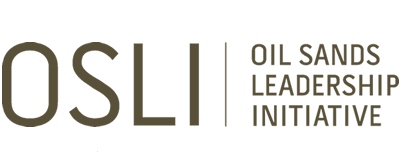
![]() University of Washington
University of Washington
![]() Anaspec
Anaspec
![]()
![]()
![]()
![]()
 "
"




